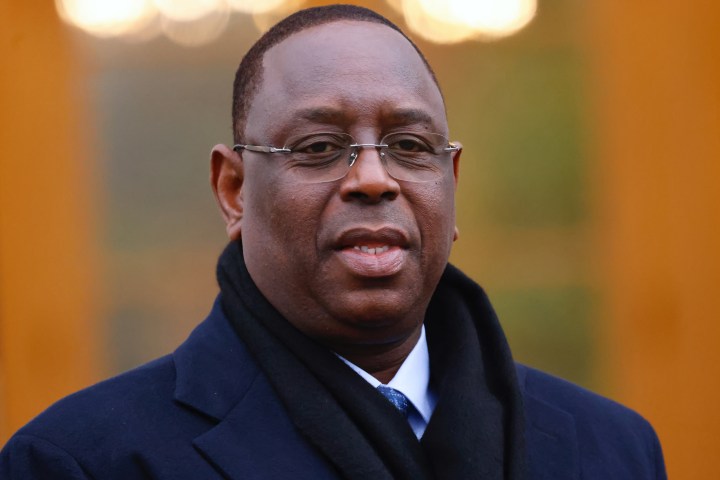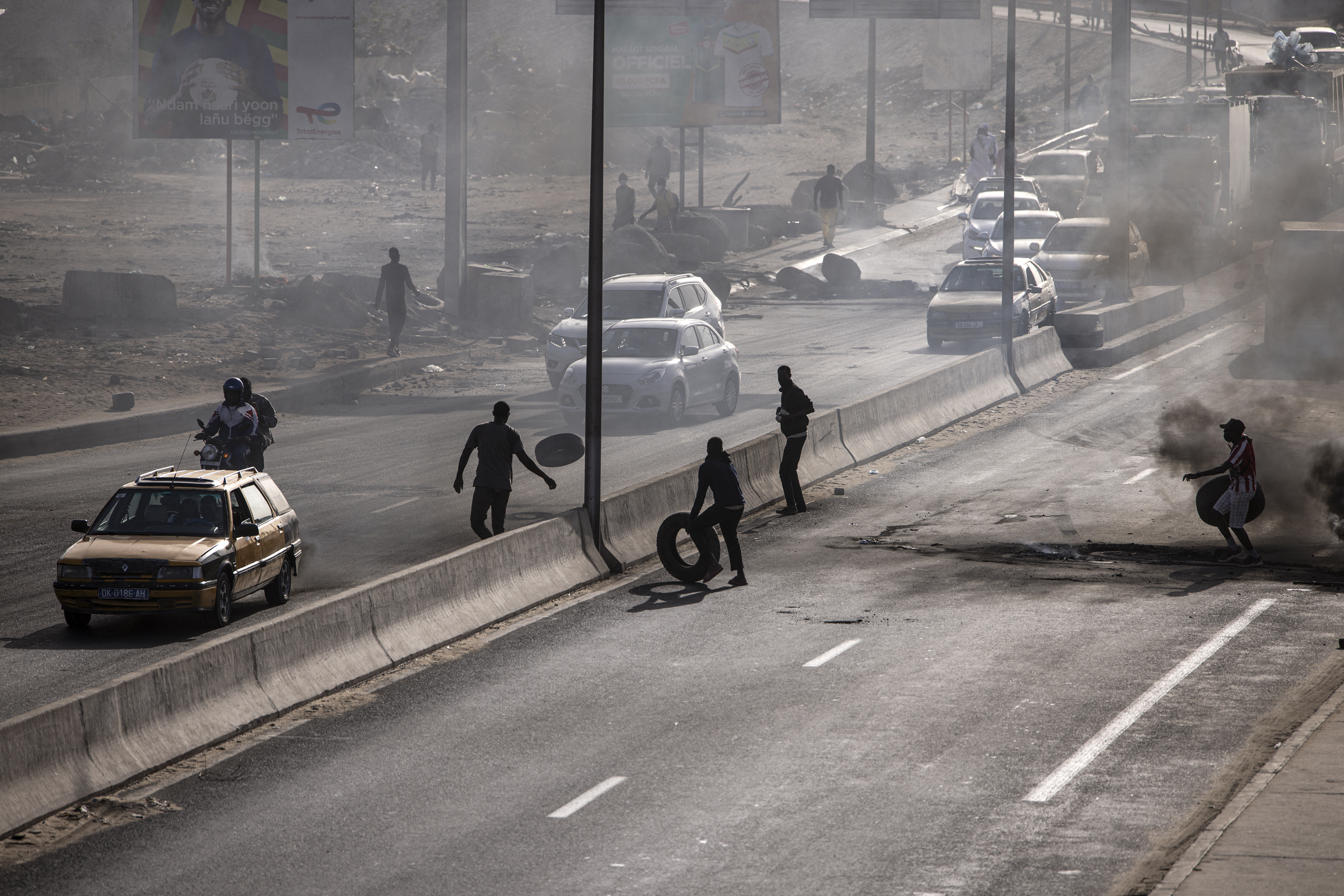DANGEROUS TIDINGS OP-ED
Senegal’s rapid drift towards autocracy raises deep concerns about democratisation collapse across Africa

Senegal, which has regularly elected its presidents and has never experienced a military coup — a rarity on the continent — is now in a highly unstable situation.
After returning from an official trip to Barbados on 2 February 2024, Senegalese President Macky Sall released a message saying that he was going to address the nation.
The day before, rumours circulated that Sall had received in the palace the President of the Constitutional Council and Prime Minister Amadou Ba, also the ruling party’s designated presidential candidate. No opposition leaders were present at the meeting, a clear indication of the intention to undermine the constitutional order.
True to speculation, on 3 February, Sall announced that he had revoked and signed the decree postponing indefinitely the elections originally scheduled for 25 February 2024. He also announced that he would send it to the National Assembly for ratification.
Read more in Daily Maverick: Three Senegal opposition lawmakers arrested after disputed vote delay
The fact that all this happened a few hours before the opening of the presidential election campaign makes it all the more curious and raises some serious red flags. This is the first time since 1963, under the presidency of Leopold Sedar Senghor, that a presidential election has been postponed in Senegal, a West African country often portrayed as an island of stability in a sub-region wracked by political instability and military coups.
Sall’s (in)convenient reason
The reason given for this bizarre postponement is not very convincing. Sall claims that there was collusion between the judiciary and parliament, especially after a parliamentary commission sent him a letter accusing two judges of the Constitutional Council of corruption.
This is all the more blatant since it is an opposition party, the Parti Democratique Senegalais, whose candidate Karim Wade was excluded from the list of 20 candidates, which made the accusations against the judges.
However, Sall justifies his action by saying that he is “launching an open national dialogue to create the conditions for free, transparent and inclusive elections”. He argued that there was a possibility of pre- and post-election disputes and clashes in the country. This is despite the fact that he has initiated a series of dialogues that have not led to any serious change in the political environment.
However, other opposition parties and civil society in general are not convinced by Sall’s reasons for the postponement. According to opposition representatives, this was all long planned by Sall’s party, the Alliance for the Republic, which has struggled to present a candidate supported by all factions of the party.
Some even claimed that Sall had been presented with an intelligence report predicting the defeat of his preferred candidate in the 25 February elections. For the opposition, this is what led Sall to back down and ask parliament to postpone the elections, apparently taking advantage of the breach by the parliamentary commission.
It should also be noted that this postponement was preceded by the closure of many universities, including the radical Cheikh Anta Diop University in Dakar. In addition, two weeks before the vote, election materials were not distributed in Dakar and the regions.

Protesters block a road during demonstrations called by opposition parties in Dakar on 4 February, 2024, to protest against postponement of the presidential election. (Photo: John Wessels / AFP)
Ratification of illegality
On 5 February, the controversial vote to ratify Sall’s decision took place throughout the day in an atmosphere of confusion and tension. In a move reminiscent of a militarised dictatorship, an elite unit of the National Gendarmerie (GIGN) entered the parliament late at night to illegally evacuate the opposition MPs and pave the way for a vote in favour of Sall’s decision.
The law of 5 February was adopted with 105 votes in favour and one against. It also allows Sall to remain in office until 15 December 2024 and possibly beyond, in clear violation of the rules on constitutional changes of government as laid down in the normative documents of both the African Union (AU) and Ecowas.
This ratification of an illegal act is capable of plunging the country into the unknown and raises fears that it will boil over in the coming weeks and months. Senegal, which has regularly elected its presidents and has never experienced a military coup — a rarity on the continent — is now in a highly unstable situation.
Another headache for regional bodies
The authoritarian drift of Senegalese power today could have many negative consequences and notable repercussions in the sub-region and even within the AU. Observers will be watching closely to see how Ecowas responds to this illegality.
This adds to the ongoing tensions within the organisation, which have been exacerbated by the withdrawal of Mali, Burkina Faso and Niger from Ecowas. The optics are certainly not good, with legitimate questions being raised about the need for consistency in the application of rules.
Read more in Daily Maverick: Proposed exits from crisis-ridden Ecowas leave West Africa at political and security crossroads
Moreover, the trio of Mali, Niger and Burkina Faso could point to Ecowas’s tepid response to the Senegalese crisis as a further indication of their reasons for leaving. Indeed, this is a major blow to the consolidation of democracy in the region, one that sends the wrong signals to “would-be” coupists in the sub-region and across the continent.
Macky Sall’s excuse for the indefinite postponement is flimsy at best and cannot serve as a legitimate justification for violating Article 2 of the Ecowas Protocol on Democracy and Good Governance, which prohibits member states from making substantial changes to the electoral laws six months before the elections without proper consultation with all major political actors, and also from postponing the election dates prescribed by the constitution and electoral laws.
As usual, the AU will defer to Ecowas on this issue. Ecowas must call Sall’s action what it is: a civilian coup. How Ecowas responds to this crisis will have serious implications for its legitimacy to promote meaningful democratisation on the continent. DM
Papa Sow is a senior researcher at the Nordic Africa Institute in Uppsala, Sweden.
Babatunde Fagbayibo is a professor of law at the University of Pretoria and also the 2023-24 Visiting Senior African Scholar Programme, at the Nordic Africa Institute, Uppsala, Sweden.
The views expressed are solely those of the authors and do not represent those of the affiliated institutions.




















 Become an Insider
Become an Insider
Comments - Please login in order to comment.